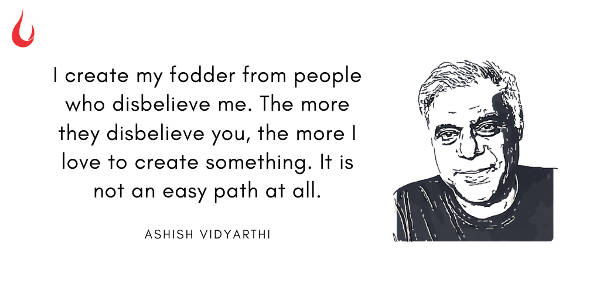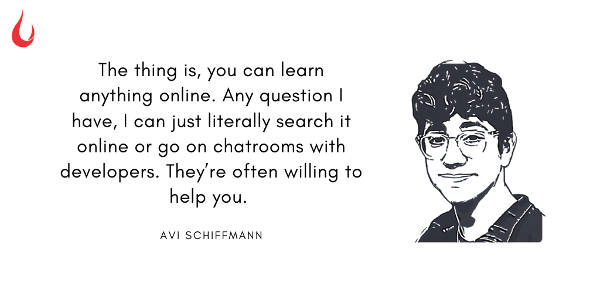[Image by Shahariar Lenin from Pixabay]
Good morning,
In Beyond the Self: Conversations between Buddhism and Neuroscience, which is a dialogue between Buddhist monk Matthieu Ricard and neuroscientist Wolf Singer, Ricard talks about working with emotions. He says, the aim is not to cease to experience emotions but to avoid being enslaved by them.
“If afflictive emotions invade the mind, then you are in trouble. If, at the moment they arise, you find a way to let them undo themselves and vanish, then you have skillfully dealt with them. By freeing anger, for instance, as it arises, we have avoided two unpractical ways of dealing with it. We did not let anger explode, with all the negative consequences that arise from such outbursts, such as hurting others, destroying our inner peace, and reinforcing our tendency to become angry often and easily. We also avoided merely suppressing anger, putting a lid on it while leaving it intact, like a time bomb, in some dark corner of our mind. We dealt with anger in an intelligent way, by letting its flames vanish. If we do so repeatedly, then anger will begin to arise less often and less strongly. Thus, the habitual tendency of becoming angry will gradually become eroded, and our traits will be transformed.”
The mental distress caused by the pandemic seems to be even greater than the physical distress with every passing day. And along with it, there is a growing realisation that we have to take care of our mental health. The key is not to dismiss it or bury it under tonnes of work, but to set some time off for it, and have a plan on how to deal with it.
Meditation/mindfulness is one way. In this issue, you will also find how Ashish Vidyarthi learnt to convert fear into something creative, productive.
Wish you a happy Thursday.
Gain strength from others’ disbelief
In the first edition of Founding Fuel’s Personal Journeys series, Charles Assisi sat down with Ashish Vidyarthi (over Zoom and a cup of chai) to discuss the actor’s remarkable career spanning 11 languages and his own recent reinvention. Charles questioned Ashish on what audacity meant to him. Ashish said:

“For me, fear has been something that made me audacious. Things they said that I could never do egged me on in so many ways. I create my fodder from people who disbelieve me. The more they disbelieve you, the more I love to create something. And I will not say that it is an easy path at all. I started working in languages other than Hindi. It was a complete no go territory, because prior to that, Hindi film actors in the 90s, people used to go down to South and there were some really nice people who were very good at fights, and they used to be hired and called for that. In fact, initially, I was lucky. The first role that I got was a fantastic role. It was from Dhill made by Dharani, and Vikram’s comeback film. But soon after that, again, they would start giving me, you know, they would narrate my role saying that there is a fight in the opening scene, one fight pre-interval, two fights pre-climax, one final fight in the climax. So I would say what's the role? They would reply, “big fights, big fights”. So then I had to say no. “I'm not looking for a fighting role. I'm not a fighter. I'm also a fighter. I'm also very good at fights. You know, I'm good at action. I love to act.”
Note: We will soon publish a recording of the conversation. If you have any questions for Ashish, you can join our Slack channel by clicking here.
Learn something new
Seventeen-year-old Avi Schiffmann has already created two of the web’s most popular sites—one to track Covid-19 cases and another to track protests. MIT Technology Review interviewed him to understand how he does it. There are interesting lessons for everyone.

Here are three:
- Identify the problem from your own experience. I started ncov2019 in late December, early January. I was curious about the coronavirus numbers, but if I wanted the most up-to-date information, I had to look to the Chinese government—and I don’t speak Chinese.
- Be willing to learn. The thing is, you can learn anything online. Any question I have, I can just literally search it online or go on chatrooms with developers. They’re often willing to help you. And most likely, someone has had the same question you’ve had before.
- Don’t let the trolls deter you. A lot of times I wake up at 3 a.m. to search through the web server and figure problems out. A lot of sketchy things have happened. I’m not a professional developer, so it takes me time. A lot of people have said, “Oh this is so easy to program, any experienced developer could have made this in a week or so.” I’m like, “If it’s so easy, why didn’t you do it?”
Ask uncomfortable questions

(Via WhatsApp)
Have any questions for Ashish Vidyarthi? Head straight to our Slack channel. If you aren’t a member, here is the invite code.
And if you missed previous editions of this newsletter, they’re all archived here.
Bookmark Founding Fuel’s special section on Thriving in Volatile Times. All our stories on how individuals and businesses are responding to the pandemic until now are posted there.
Warm regards,
Team Founding Fuel


